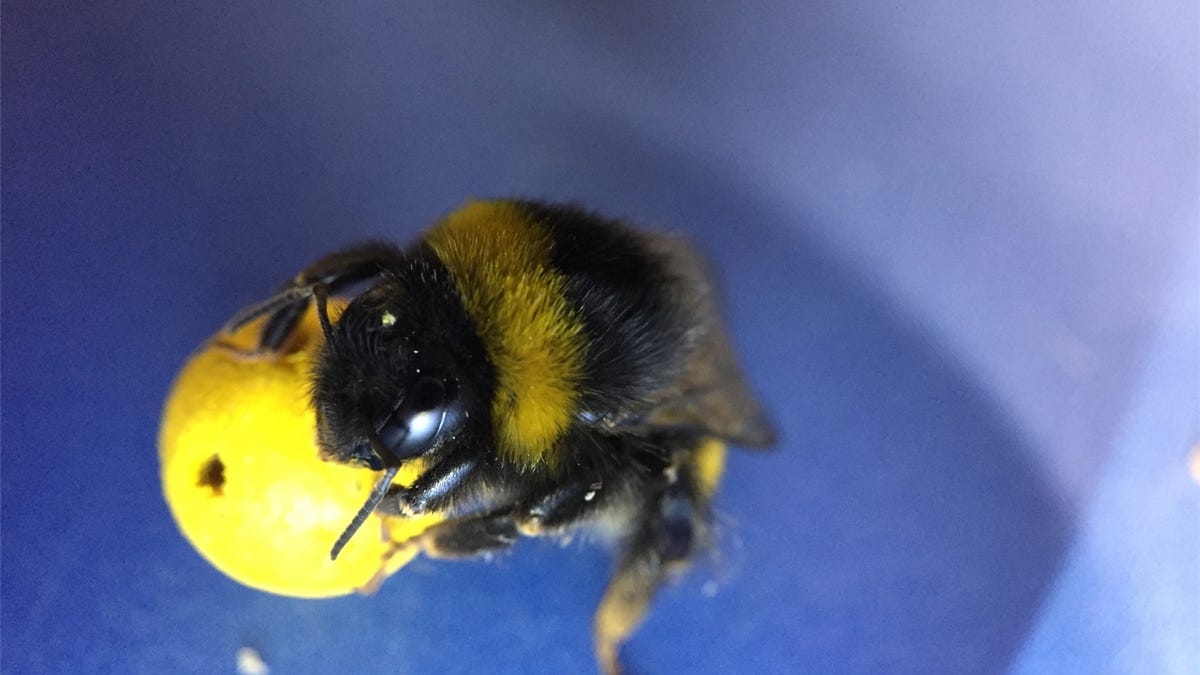Goal-scoring bumblebees prove insect brains are awesome
Bumblebees have demonstrated the ability to learn new skills -- showing brain size doesn't matter after all.
Science has gone and gotten all adorable on us again. This time, it's bumblebees, teaching us that tiny brains can do big things.
We already know that a small brain is capable of complex learning. Take crows, for instance. Their brains are much smaller than those of chimpanzees, but studies suggest that the birds are just as, if not more, intelligent.
Bumblebees are not more intelligent than crows, probably, but they may be capable of more than previously thought, thanks to new research from a team at Queen Mary University of London. They have taught bumblebees a completely new skill -- rolling a ball into a goal.
Bumblebees have demonstrated the ability to solve problems in the past, but these tasks were all similar to the bees' normal behaviour.
"We wanted to explore the cognitive limits of bumblebees by testing whether they could use a non-natural object in a task likely never encountered before by any individual in the evolutionary history of bees," said joint lead author Clint Perry.
The bees were divided into three groups to learn to move the farthest ball of three into a small indentation in the centre of the field.
The first group observed a fellow bee that had previously been trained to move the ball with a dummy demonstrator, receiving a food reward. The second group was trained by a "ghost," a magnet that moved the ball to the goal. The third group didn't receive a demonstration of the task -- the ball was already set up in the goal, with a reward, and the bees had to connect the dots that the ball in the centre meant receiving a reward.
The bees that were trained by another bee or the demonstrator learned more efficiently than the other two groups. And they went one better, too. Instead of grabbing the farthest ball, the bees grabbed the closest ball, reducing the amount of work required.
"The bees solved the task in a different way than what was demonstrated, suggesting that observer bees did not simply copy what they saw, but improved on it," said joint lead author Olli J. Loukola. "This shows an impressive amount of cognitive flexibility, especially for an insect."
It's a big win for insect intelligence.
"Our study puts the final nail in the coffin of the idea that small brains constrain insects to have limited behavioural flexibility and only simple learning abilities," co-author Lars Chittka said.
Solving for XX: The industry seeks to overcome outdated ideas about "women in tech."
Special Reports: All of CNET's most in-depth features in one easy spot.


